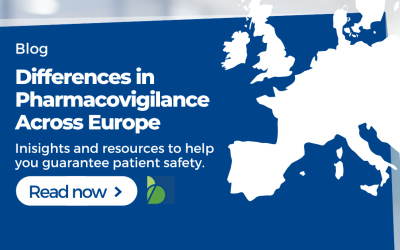It has become common practice for pharmaceutical companies to run clinical trials in Eastern Europe. However, it is also a common misconception that Eastern European countries only offer the lowest cost of operations as a benefit. This article shares insight into what factors you should consider when selecting the best country to run Clinical Trials in Eastern Europe.
Why are companies interested in running Clinical Trials in Eastern Europe?
There are many reasons to choose Eastern Europe as the location for Clinical Trials. The region has a long history of successful clinical research, and its infrastructure and regulatory environment are well-suited to the needs of clinical trials.
In addition, Eastern European countries offer several advantages for clinical trials, including lower costs, a large pool of potential patients, and easy access to world-class medical facilities. With these factors in mind, it is no wonder Eastern Europe is becoming an increasingly popular destination for clinical trials.
Common misconceptions about running Clinical Trials in Eastern Europe?
Several misconceptions are associated with running a clinical trial in Eastern Europe. These include:
Clinical Trial related concerns for running Clinical Trials in Eastern Europe
Widely distributed patients
In many countries in Eastern Europe, patient populations are often spread out geographically, making it challenging to identify and enrol sufficient numbers of patients for a clinical trial. This can lead to delays and cost overruns. However, from our experience, the eastern European countries with well-developed healthcare have centralized patient pools that are at least on par with western Europe.
Limited infrastructure
The infrastructure in many countries in Eastern Europe is often not as developed as in Western Europe or the United States, which can make it challenging to conduct a clinical trial effectively. This can result in lower-quality data and higher costs.
Lack of experience
Many countries in Eastern Europe have little experience conducting clinical trials. This can lead to errors and mistakes, creating significant risks for sponsors and CROs.
In fact, patients here are relatively ‘untapped’ and very susceptible to trial participation. Additionally, from our experience, we can assure you that Eastern Europe has caught up and can offer solid infrastructure to support your trials and experience KOLs to deliver them successfully.
People related for running Clinical Trials in Eastern Europe
Language barriers
Many people in Eastern Europe speak languages that are generally not widely spoken in the West, making communication between sponsors, CROs, and investigators difficult. This can lead to misunderstandings and errors. An understandable assumption that we can’t deny.
Cultural differences
There can be significant cultural differences between Western sponsors/CROs and Eastern European investigators and patients. These differences can make it challenging to conduct a clinical trial successfully.
Part of these misconceptions may hold up, but a sponsor can mitigate them through careful investigation and intelligent use of partners. Working with a CRO like Biomapas can help you bridge these challenges because of our local presence.
Healthcare System Related for running Clinical Trials in Eastern Europe
Regulatory uncertainties
The regulatory environment in many countries in Eastern Europe is sometimes less developed and less predictable than in Western Europe or the United States. This can create significant uncertainties and risks for sponsors and CROs, so we recommend performing solid research into local regulations in your country of choice.
Reimbursement uncertainties
In many countries in Eastern Europe, there is often no straightforward process for reimbursement of clinical trial-related costs. To prevent any financial risks, it’s wise to take possible losses like these into account in the budgeting phase of your study. That way, you’ll way run into any inconvenient surprises.
Following years of experience, we know our way around Eastern European Healthcare systems. Many sponsors have successfully completed Eastern Europe trials through meticulous planning and budgeting.
Country Related for running Clinical Trials in Eastern Europe
Political instability
Some countries in Eastern Europe are indeed in a state of political flux, which can make it difficult to predict the legal and regulatory environment in which a clinical trial will be conducted. This could hypothetically create significant uncertainties and risks for sponsors and CROs.
Read this article to find how how the conflict in Ukraine impacts the pharmaceutical industry.
While we live in uncertain times, this is only the case in a few and shouldn’t compel biotech or pharmaceutical companies to bypass all Eastern Europe. If you’d like to learn more about specific countries to see where you can run a clinical, start a conversation.
How Do I Find a Good Site for My Trials?
When looking for a good clinical trial site, you should keep a few things in mind. First, you want to ensure that the site is accredited and has a good reputation. You also want to ensure that the site can meet your specific needs.
There are a few ways to determine if a clinical trial site is reputable. One way is to check with the local ethical committee. Another way is to check with the local regulatory authority.
Once you have found a few potential sites, you will want to visit them and see if they meet your needs. Make sure to ask about their experience with running clinical trials and their success rates.
You should also ensure that you are comfortable with the staff at the site. They should be able to answer any questions and make you feel at ease.
Choosing the best country in Eastern Europe to run your clinical trials can be a difficult decision, but if you keep these things in mind, you should be able to find a suitable site that meets your needs.
How to Prepare for Running Clinical Trials in Eastern Europe
Clinical trials in Eastern Europe can be an excellent option for achieving high-quality data at a lower cost than in other parts of the world. With careful planning and execution, your clinical Trial can be successful and provide valuable insights into your treatment or device. Are you considering running clinical trials in Eastern Europe? If so, there are a few things you need to know to ensure a successful outcome.
There are many factors to consider, like the type of Trial you’re running, the regulations in each country, and the infrastructure and support available.
First and foremost, you need to choose the right country. There are many factors to consider when making this decision, including the regulatory environment, the availability of qualified staff, and the infrastructure.
Once you’ve chosen the right country, you must prepare for the Clinical Trial, including ensuring you have the necessary approvals and licenses and developing a robust protocol.
You’ll need to work with a local contract research organization to set everything up. This includes finding appropriate facilities and staff, navigating the regulatory landscape, and ensuring you meet all ethical and legal requirements.
Finally, it would help if you prepare for any challenges that may arise during the Trial. We recommend going to the extent of having contingency plans in case of unexpected delays or setbacks.
Following these steps will increase your chances of success when running clinical trials in Eastern Europe.
Benefits of running a Clinical Trial in Eastern Europe
When it comes to choosing the best country in eastern Europe to run your clinical trials, there are some factors to consider. Each country has unique advantages, from the quality of the facilities and staff to the availability of patients.
Cost Savings
One of the significant benefits of conducting clinical trials in eastern Europe is still the cost savings. Countries in this region are typically much less expensive than those in western Europe, making them an attractive option for budget-conscious companies. In addition, many eastern European countries have well-developed infrastructure and regulations conducive to clinical research.
Patient Enrolment
Another advantage of conducting clinical trials in eastern Europe is the large population of potential patients. With a population of over 700 million people, there is no shortage of potential subjects for your Trial. Furthermore, many eastern European countries have a high incidence of certain diseases, making them ideal for testing new treatments.
Eastern Europe is an excellent option if you are looking for a cost-effective and convenient location to conduct your clinical trials. With its experienced staff and exhaustive pool of potential patients, you can be sure that your Trial will be a success.
In this article, we discuss several other advantages of running a clinical trial in Eastern Europe.
Which is the best Country in Eastern Europe to Run a Clinical Trial?
There are many reasons why you might want to choose Eastern Europe as the location for your clinical trials. The region’s proven record of producing high-quality research boasts a large pool of highly skilled medical professionals. Additionally, the cost of running a clinical trial in Eastern Europe is often much lower than in other parts of the world. As the clinical landscape constantly changes, it can be hard to track which is the best Country in Eastern Europe to Run a Clinical Trial. However, our clinical experts gladly share their experiences.
Are you curious which Eastern European country is a good match for your Clinical Trial? Set up a conversation with on of our local experts to learn more.
A History of Pharmacovigilance
Pharmacovigilance, also known as drug safety surveillance, is the process of monitoring, identifying, and assessing medicinal products' potential risks and benefits. It is an essential part of ensuring the safety and efficacy of drugs for patients and healthcare...
Developing a Safety Management Plan (SMP) for Pharmacovigilance
Developing a Safety Management Plan (SMP) What is the Safety Management Plan (SMP)? This article explores all you need to know about the SMP for Pharmacovigilance and how you develop it. A Safety Management Plan (SMP) is a critical component of a comprehensive...
EMA & FDA: What Are the Similarities & Differences in Risk Management Procedures?
European Medicines Agency (EMA) and Food and Drug Administration (FDA) are regulatory bodies working in Europe and the United States of America, respectively, with their own approached to risk management procedures. They both aim to promote and protect public health...










